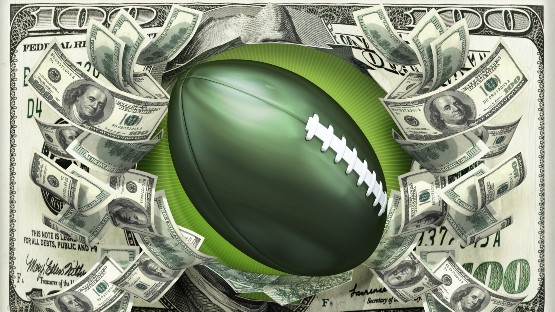
The NCAA, in a legal response to a suit filed last week by the attorneys general in Virginia and Tennessee challenging existing NIL rules, said the suit lacks legal standing because the two states fail to show irreparable harm from the application of the rules.
“Tennessee is not irreparably harmed by rules restricting something the State’s laws independently prohibit,” lawyers for the NCAA wrote in a brief filed on Saturday.
The states have asked a federal court for a temporary restraining order to be put in place with respect to the NCAA’s NIL rules by Tuesday, a day ahead of the spring recruiting signing period that opens on Wednesday, based on their belief that their case is likely to succeed on the merits.
This is a bit presumptuous, according to the NCAA lawyers in their filing.
“The rules they seek to challenge have been in effect for years, and Plaintiffs offer no justification for claiming an entitlement to emergency relief on a truncated record after delaying years in seeking any relief,” the NCAA brief said.
The suit was filed last week after the University of Tennessee made public that its football program was the subject of an NCAA investigation over possible Level 1 and Level 2 violations of NIL rules.
It’s not clear why Virginia Attorney General Jason Miyares signed onto the suit, other than for political reasons.
The crux of the lawsuit is that the NCAA Is trying to stop the NIL market from functioning by banning prospective college athletes, including preps and transfers, “from discussing potential NIL opportunities before they actually enroll.”
“It’s like a coach looking for a new job, and freely talking to many different schools, but being unable to negotiate salary until after he’s picked one (the depressive effect on coaches’ wages in such a dysfunctional market is obvious),” the suit alleges.
More from the suit:
“By prohibiting such interactions, the NCAA’s current approach restricts competition among schools and third parties (often NIL ‘collectives’) to arrange the best NIL opportunities for prospective athletes. The NCAA bans the use of NIL contracts as a ‘recruiting inducement,’ meaning prospective athletes cannot negotiate NIL agreements before they commit to a member institution. A prospective athlete must commit, enroll, or transfer without understanding the NIL opportunities available at the destination or comparing those opportunities to the ones at competing schools. This NIL-recruiting ban limits competition and artificially decreases NIL compensation that college athletes could otherwise obtain in a free market.”
The NCAA response points out that Tennessee state law bars NIL inducements in recruiting, and that the suit filed last week doesn’t provide evidence that opportunities for student-athletes are chilled by the NCAA rules as is claimed.
One other important legal point raised in the NCAA response: the NCAA is a voluntary organization, and schools, including Tennessee, agree to voluntarily be a part in the NCAA governance process and abide by its rules.
Miyares and Tennessee AG Jonathan Skrmetti responded in a brief filed on Sunday, conceding that the Tennessee state law cited by the NCAA does bar pay-for-play, but that law also would allow recruits to have conversations with collectives about NIL opportunities, which is banned by the NCAA, before reiterating their request for a temporary restraining order effectively putting the NIL rules in place now to bed.
The response from the NCAA:
“There is no reason to upend this process, invite chaos on a moment’s notice, and transform college sports into an environment where players and schools match up based primarily on the dollars that can change hands. Requests for radical change require sound deliberation. They benefit from a complete record and fulsome consideration. The Court should deny Plaintiffs’ late-breaking and ill-conceived request for injunctive relief.”










